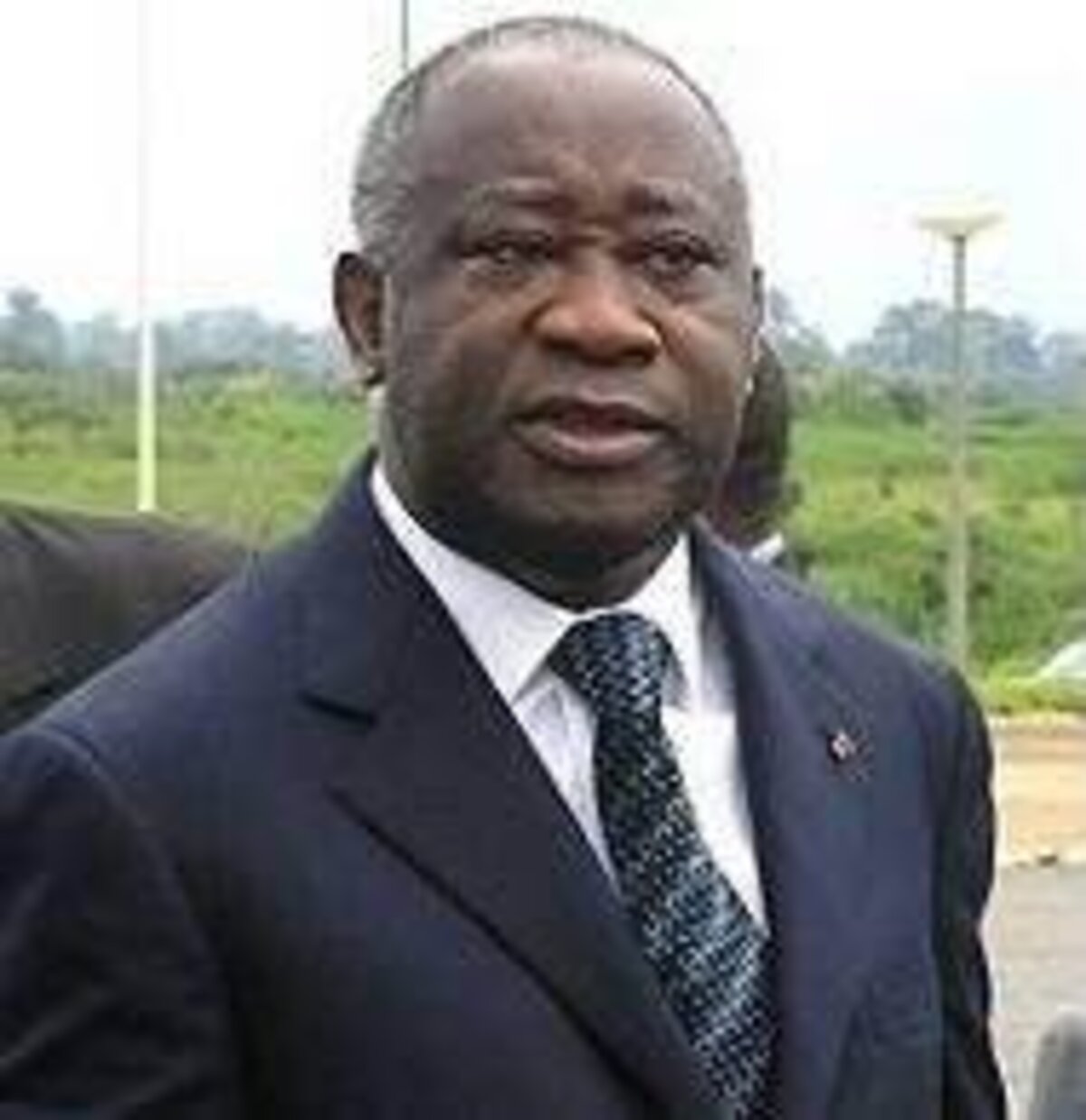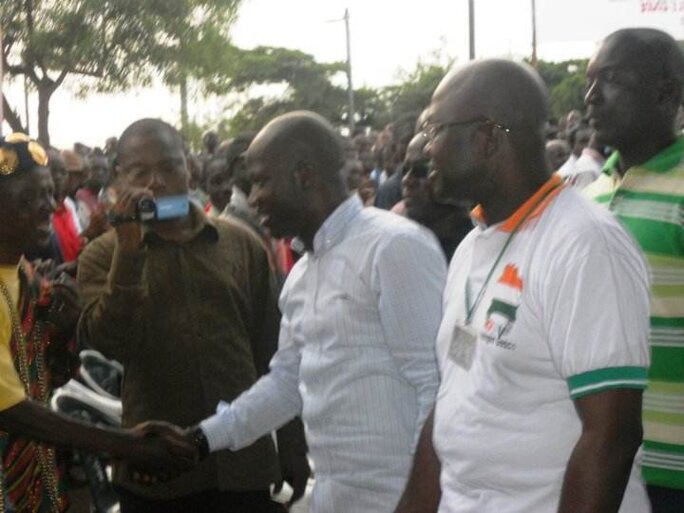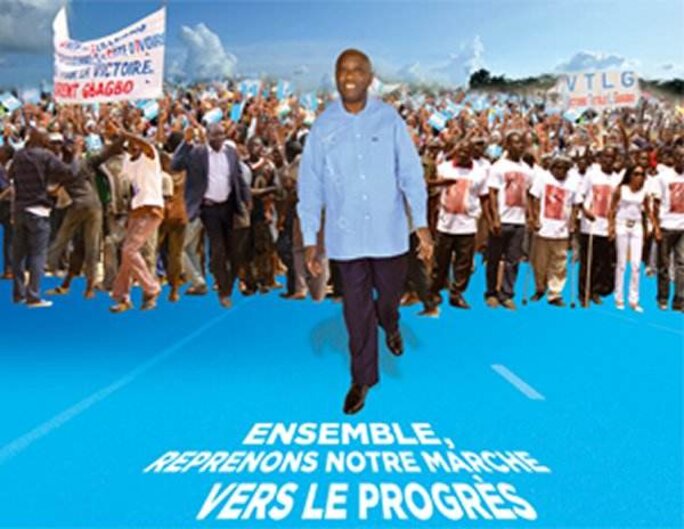Following presidential elections in November, Ivory Coast's defeated incumbent Laurent Gbagbo is refusing to step down, despite losing to Alassane Ouattara in a result recognised by both the Ivorian electoral commission and the international community.

Gbagbo is entrenched in his presidential headquarters in the economic capital Abidjan, while Ouattara and his staff are camped at a hotel near the city where he is protected by a ring of about 800 United Nations troops.
Despite the threat of military intervention by West African states, Gbagbo appears unwilling to go quietly. In December he closed down several Ouattara-supporting newspapers, described the UN as "an agent of destabalisation" and called for its peace-keeping force, along with a French army contingent officially present to provide protection to French nationals, to leave the country.
As tensions rise - hundreds of people have been killed so far in street clashes between rival groups - the Un says 22,000 Ivorians have fled to neighbouring Liberia to escape what many see as impending civil war (at the end of this article is a brief summary of the country's key dates and crises).
"I ask of every Ivorian to prepare themselves for combat, we are going to totally liberate our country," proclaimed Gbagbo's newly appointed Minister for the Young and Employment, Charles Blé Goudé on December 18th. Blé Goudé is the leader of Gbagbo's Young Patriot movement, a militia that he relies upon to maintain control over the streets of Abidjan, the country's power base.
A violent and extremist group, they have remained relatively discreet during the current crisis. But just who are they, and will they combat in support of Gbagbo if the conflict flares into street war, as many observers fear, in the coming days? Ludovic Lamant sketches a profile of the movement and its leader.
1 - Who are the Young Patriots?
They are made up of about ten groups and clans, comprised of political militants and ultra-nationalist military personnel. All, officially, are prepared to rise up in arms to defend the interests of Laurent Gbagbo.
They were founded in 2002, when Gbagbo, elected as president in 2000, saw off an attempted coup d'état after which the rebels took control of the north of the country. It was essentially the ‘Young Patriots', aided by foreign mercenaries, who countered the rebellion, allowing Gbagbo to maintain control over the south of Ivory Coast.
Richard Banégas, a professor of African Studies at the Paris Sorbonne University, has expert knowledge of the Young Patriots. He has described them as representing "the clearest expression of the evolution of Laurent Gbagbo's regime at war [...] A regime which, unable to rely upon a powerful army and solid international alliances, played the para-military option of transforming society into militias."
As of the summer of 2003, the conflict that erupted in 2002 had settled, and Gbagbo's combatants returned to everyday life while keeping possession of their arms. That was when the Young Patriots became transformed into a new social movement, organised and funded over the past decade by the inner circle of Gbagbo's regime.
From their self-styled ‘parliament' in Ivory Coast's largest city, Abidjan, they delivered the regime's official policy lines in violent diatribes against what they denounce as French neo-colonialism and in defence of an independent Ivory Coast.
"Laurent Gbagbo has always undermined his opponents by presenting them as candidates of foreign powers, and the Young Patriots have always used the same speech, against France and the United Nations," argues Koné Gnangadjomon, a sociologist at the Ivorian University of Bouaké, and author of a thesis on the Young patriots. "In this sense, the criticisms that are being heard at the moment are not new."
2 - Who is Charles Blé Goudé?He is the 38 year-old charismatic head of the Young Patriots, and has the key role of being the one who distributes the money paid to members, each week, by the presidential palace. Born in 1972, ‘general' Blé Goudé, as he is also known, was in December appointed by Bgabo's ‘government' as Minister for the Young, Employment and Professional Training.

Enlargement : Illustration 2

His political education began within the Student and School Federation of Ivory Coast (FESCI)1, a youth and student organization denounced by Human Rights Watch for violent harassment of students and teachers disloyal to Gbagbo, and which he went on to lead, as secretary-general, from 1998 to 2000. He studied English at Abidjan's Cocody University, and later began, but never finished, a Master degree in ‘Conflict Resolution Studies' at Manchester University, in the United Kingdom.
His predecessor as FESCI leader was Guillaume Soro, a leading rebel figure now re-appointed as prime minister to Alassane Ouattara, the newly-elected president. Blé Goudé was imprisoned several times during the 1990s for his involvement in student revolts, and was the principal organizer of the violent anti-French street demonstrations in Abidjan during the 2003-2004 crisis, when he very effectively mobilised Young Patriot supporters. Since 2006 he is the subject of UN sanctions that have prevented him from leaving Ivory Coast.
Whilst he tows the line of his boss, Laurent Gbagbo, he is, like many other Ivorian politicians, above all engaged in activities for his own benefit. He is currently engaged in transforming the Pan-African Congress of Young Patriots2 (COJEP), the hardline core movement of the 'Patriots', into an autonomous political party which he intends leading into future elections.
3 - What are their numbers?The answer is uncertain. What is clear, however, is that their numbers have significantly diminished since the Young Patriots' heyday between 2002 and 2003. "This erosion has been accompanied by an increasing rivalry between the different heads of organisations and a global running out of steam of the movement since the Ouagadougou peace agreements," commented Richard Banégas. Indeed, many Young Patriots were unhappy to see the accession to political power of former rebels they had fought against and chose to leave the movement.
The Young patriots of 2010 have little in common therefore with those involved in the violence that erupted in 2003. "As of 2003, the gap in standards of living between the chiefs and the grass roots grew," commented Ivorian sociologist Koné Gnangadjomon, in an interview with Mediapart conducted by phone. "A few months after the formation of the movement, some militants derided their chiefs for owning villages and luxury cars while they no longer had enough to pay the rent on their houses. This divide at the heart of the Patriots caused a great vdeal of frustration, and led to a certain demobilisation."
"I do not believe in a mass mobilisation of Young Patriots over the coming days," Gnangadjomon said. "Some of them have the feeling of having been forgotten after several years of loyalty to the state."
It appears is far from certain that Blé Goudé will meet with widespread support, beyond that of the hardline COJEP, if and when he calls upon his troops to combat for Gbagbo.
-------------------------
1: Fédération estudiantine et scolaire de Côte d'Ivoire.
2: Le congrès panafricain des Jeunes patriotes.
4 - Do they really control the streets of Abidjan?While the Young Patriots movement has been losing some of its support, it has become copied by others. The parties of Alassane Ouattara and former president Henri Konan Bédié have tried to win back power of the city's streets with their own militias. There are many examples of disillusioned Young Patriots who swapped sides and joined them, bringing with them the experience and methods employed.

Enlargement : Illustration 3

One of the possible outcomes of the current crisis is that, instead of a nationwide conflict, a long-lasting conflict between rival militia forces will set in, with violent combat in the main cities between these armed groups, small in numbers but highly motivated. "Political activism is very fluctuant, very influenced by the political situation," cautions Richard Banégas. In a volatile situation therefore it is conceivable that the Young Patriots could, given their greater operational experience, recover support.
5 - Can Gbagbo continue to pay them?
Although several sociological studies have demonstrated that money is far from being their only motivation, the Young Patriots need to be paid, and their upkeep represents a significant cost. It is unclear how Laurent Gbagbo will be able to maintain their funding since the recent suspension of international aid to Ivory Coast, and this will depend on how big a war chest he has managed to prepare over preceding years.
Key dates to the current crisis:
August 1960: Former French colony is declared independent.
December 1993: Death of president Félix Houphouët-Boigny.
December1994: Adoption of a new electoral codel restricting eligibilty of presidential candidates.
October 1995: Election as president of Henri Konan Bédié, so-called 'natural heir' to Félix Houphouët-Boigny.
December 1999: Coup d'état during which General Robert Gueï takes power.
October 2000: Laurent Gbagbo elected president.
September 2002: Coup d'état attempt against Laurent Gbagbo. The rebels take over control of the mostly Muslim north of the country.
January 2003: Signature of the Marcoussis peace agreement, allowing rebels into government while Gbagbo retained presidency.
July 2003: Official end to the civil war.
2005: Presidential elections postponed until October 2010.
March 2007: Ouagadougou agreement for peace settlement programme.
November 2010: The postponed presidential elections are finally held. Ivorian electoral commission proclaims Alassane Ouattara the victor, with 54% of the vote (Laurent Gbagbo 46%). The Gbagbo-controlled Ivorian Constitutional Council claims a 51%-49% victory for Gbagbo, who refuses to stand down.
-------------------------


